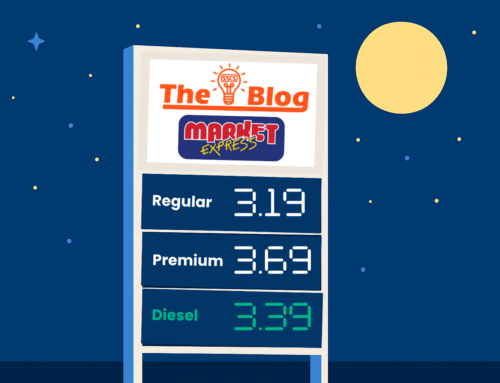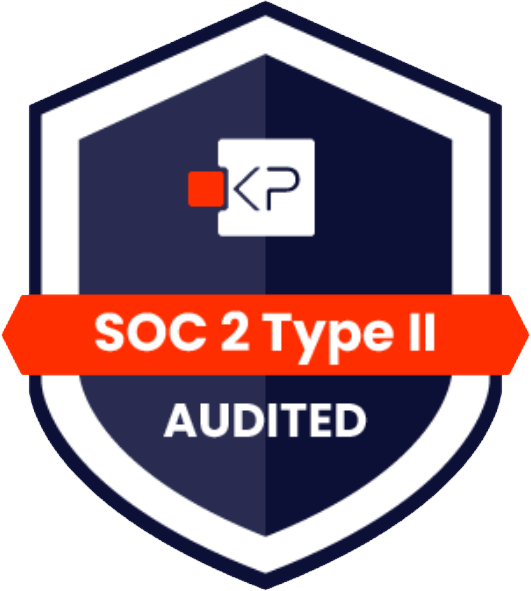In a continuing effort to provide interesting, orginal content for our blog, we will occasionally run profiles of SSCS customers. We’re starting with Matthew Webb of Webb’s Auto & Truck Services, Inc., a Circle K franchise. In this profile Matt talks about the support he received from Circle K to improve the performance of his once ailing store, support which included access to SSCS technologies. This is Part 1 of a two-part profile that will run on consecutive Thursdays.
Partnered for Success (Part 1)
Matthew Webb took his family’s underperforming business and turned it into a consistent money maker with support from Circle K and SSCS technology.
 As is the case with so many American enterprises, the family roots of Webb’s Auto & Truck Services, Inc. run deep. The Bell Gardens, California business was started by Richard and Robert Webb—the father and uncle of current general manger Matthew Webb—together with Matt’s grandfather, Gary Webb. Webb’s was the first gas station in the city and for many years after functioned as a gasoline-only, mechanical service site, the pervasive model for retail petroleum at the time. In 1975, Matt’s grandfather bought a second gas station, right across the street.
As is the case with so many American enterprises, the family roots of Webb’s Auto & Truck Services, Inc. run deep. The Bell Gardens, California business was started by Richard and Robert Webb—the father and uncle of current general manger Matthew Webb—together with Matt’s grandfather, Gary Webb. Webb’s was the first gas station in the city and for many years after functioned as a gasoline-only, mechanical service site, the pervasive model for retail petroleum at the time. In 1975, Matt’s grandfather bought a second gas station, right across the street.
Matt grew up and around the business, so it was only natural that he considered making his own contribution to the family enterprise. “I was drawn to working on cars at first—my dad is a master mechanic,” Matt remembers. “As I got older, however, I started to notice that the business was changing, making it less and less practical to offer mechanical service. Ultimately, I re-thought things and began to gravitate to the business as a whole.”
 In an effort to keep evolving along with the retail petroleum industry, the original station added a car wash in 1979 and, in 1996, built its first C-store under the auspices of Matt’s father and uncle.
In an effort to keep evolving along with the retail petroleum industry, the original station added a car wash in 1979 and, in 1996, built its first C-store under the auspices of Matt’s father and uncle.
“The business did okay for awhile, although the second gas station always kind of struggled, relying on the profits of our auto repair site to keep it afloat,” explains Matt. “We eventually had to reassess our approach in the face of increasing competition from new stations that were cropping up in the vicinity. It affected us adversely. Our store lost $5,000–$10,000 a month five years running. That’s when I stepped in to see if I could make a difference.”
Matt began to manage the store in 2009. In the face of the sustained challenges facing the business, he placed more of an emphasis on the store as a profit center. “When you’re down to only making 5, 8, 10 cents a gallon, it’s important that you drive business to your in-store profit centers like hot and cold dispensed beverages and packaged goods. We began to realize that increasing our focus on the store was the best way to get ahead in the modern business landscape.”
 Matt’s understanding of how to run a successful store in his market consistently improved, but it didn’t take long before he and his family came to the conclusion that a stable, knowledgeable partner would be an invaluable asset if the C-store was going to reach its full potential. For that reason, Webb’s Auto & Truck Services made a decision that would change the face of its business forever: it franchised with Circle K.
Matt’s understanding of how to run a successful store in his market consistently improved, but it didn’t take long before he and his family came to the conclusion that a stable, knowledgeable partner would be an invaluable asset if the C-store was going to reach its full potential. For that reason, Webb’s Auto & Truck Services made a decision that would change the face of its business forever: it franchised with Circle K.
Almost out of the gate, the partnership provided several impactful benefits to Webb’s. It started with the ability to conduct business under the sign of a well-known, trusted brand. “We noticed an uptick in store traffic from the very first day we erected the sign,” Matt recalls. “People noticed the Circle K logo; it meant something positive to them; it gave us a presence in our market that we previously didn’t have.”
Another significant benefit of the partnership was the management expertise Circle K provided through its SMART Academy, a comprehensive, hands-on curriculum that provided an accurate feel for the activities and responsibilities of running a franchise store. Sharing expertise with other franchise owners proved a related fringe benefit, the result being that a valuable context for the science of convenience store operation.
“Circle K emphasized the importance of taking control over your business, to know what’s going on in your store,” explains Matt. “You can’t wait for your accountant to come in every three months to review the financials because if you find a problem, it’s too late to do anything about it. It’s difficult to regulate cash flow with only a quarterly spot check, and all too often you find yourself getting crunched with big, unexpected bills for which you haven’t sufficiently allocated money. You have to take a proactive approach. That’s where the back office technology that was part of the Circle K agreement came into play.”
Continue reading Part 2.






Leave A Comment